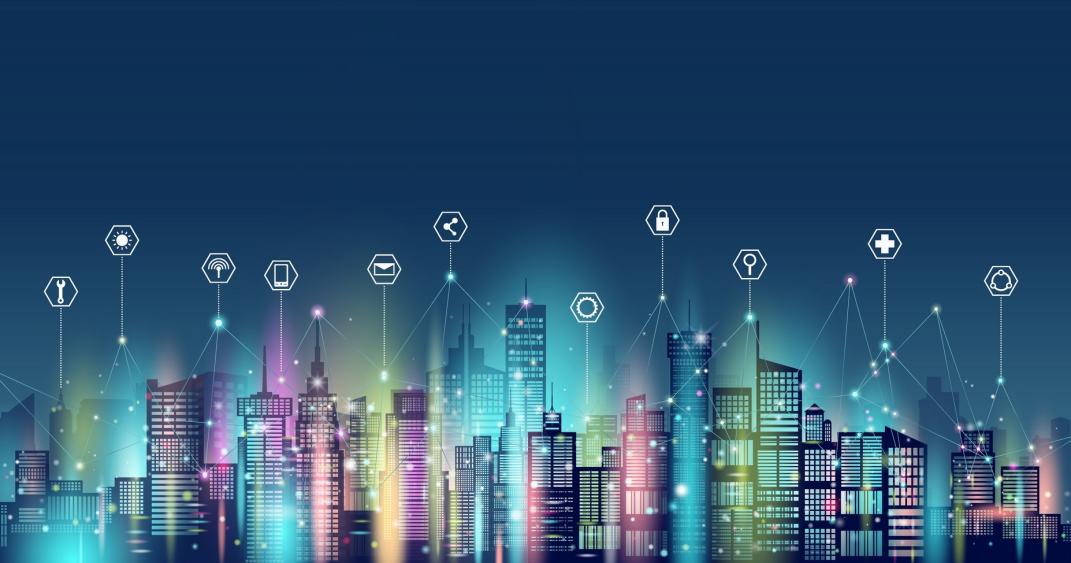How Can AI Improve Urban Planning and Infrastructure?
As cities continue to grow and evolve, the need for efficient and sustainable urban planning and infrastructure becomes increasingly critical. Artificial intelligence (AI) is emerging as a powerful tool that can transform the way we plan and manage our cities, offering a range of benefits and possibilities. This article explores how AI can enhance urban planning and infrastructure, leading to smarter, more livable, and sustainable urban environments.

I. AI And Urban Planning:
1. Data Analysis And Predictive Insights:
AI algorithms can analyze vast amounts of data, including census records, traffic patterns, crime statistics, and environmental data, to identify trends, patterns, and relationships that may not be apparent to human planners. This enables urban planners to make more informed decisions about land use, transportation, housing, and other aspects of urban development.
2. Urban Planning Tools And Software:
AI is being integrated into urban planning tools and software, such as Geographic Information Systems (GIS) and simulation software, to enhance their capabilities. AI-powered tools can generate 3D visualizations, simulate different scenarios, and optimize urban designs, helping planners to create more efficient and sustainable urban environments.
3. Successful AI-Driven Urban Planning Projects:
- Singapore: AI is used to optimize traffic flow, manage energy consumption, and improve public transportation systems, resulting in a more efficient and sustainable city.
- Helsinki, Finland: AI-powered tools are used to create digital twins of the city, enabling planners to simulate different scenarios and make informed decisions about urban development.
- Zurich, Switzerland: AI algorithms analyze data from sensors and IoT devices to optimize energy distribution and reduce energy consumption in buildings.
II. AI In Infrastructure Development:
1. Infrastructure Design And Optimization:

AI can assist engineers and architects in designing and optimizing infrastructure projects, such as roads, bridges, and buildings. AI algorithms can analyze data on traffic patterns, soil conditions, and environmental factors to generate optimal designs that are both efficient and sustainable.
2. Construction And Maintenance:
AI can be used to monitor construction progress, detect defects, and predict potential problems. AI-powered drones and robots can inspect infrastructure assets, such as bridges and pipelines, to identify areas that require maintenance or repair.
3. Smart Infrastructure Systems:
AI is playing a crucial role in the development of smart infrastructure systems, such as smart grids, intelligent transportation systems, and water management systems. AI algorithms can optimize energy distribution, manage traffic flow, and detect leaks and contamination in water systems, leading to improved efficiency and sustainability.
III. Benefits Of Using AI In Urban Planning And Infrastructure:
- Improved Efficiency and Productivity: AI can automate many tasks and processes, freeing up planners and engineers to focus on more strategic and creative aspects of their work.
- Enhanced Decision-Making: AI provides data-driven insights and predictive analytics that enable urban planners and engineers to make more informed decisions about urban development and infrastructure projects.
- Increased Sustainability and Resilience: AI can help create more sustainable and resilient urban environments by optimizing energy consumption, reducing waste, and improving disaster preparedness.
- Improved Quality of Life: AI-driven urban planning and infrastructure can lead to better public transportation, safer streets, and more efficient energy distribution, resulting in an improved quality of life for urban residents.
IV. Challenges And Considerations:
1. Data Privacy And Security:
The use of AI in urban planning and infrastructure raises concerns about data privacy and security. It is essential to implement robust measures to protect sensitive data and ensure that it is used responsibly and ethically.
2. Ethical And Responsible Use Of AI:
It is important to ensure that AI is used ethically and responsibly in urban development. AI algorithms should be designed to promote inclusivity, equity, and sustainability, and to avoid bias and discrimination.
3. Collaboration And Expertise:
Successful implementation of AI in urban planning and infrastructure requires collaboration between urban planners, engineers, AI experts, and other stakeholders. It is essential to bridge the gap between these disciplines and foster a shared understanding of the potential and limitations of AI.
V. Conclusion:
AI has the potential to revolutionize urban planning and infrastructure, leading to smarter, more livable, and sustainable cities. By leveraging the power of AI, urban planners and engineers can make more informed decisions, optimize infrastructure design and maintenance, and create urban environments that are both efficient and sustainable. As AI continues to advance, it is essential to address the challenges and considerations associated with its use, and to embrace AI as a tool for creating better cities for the future.
YesNo

Leave a Reply